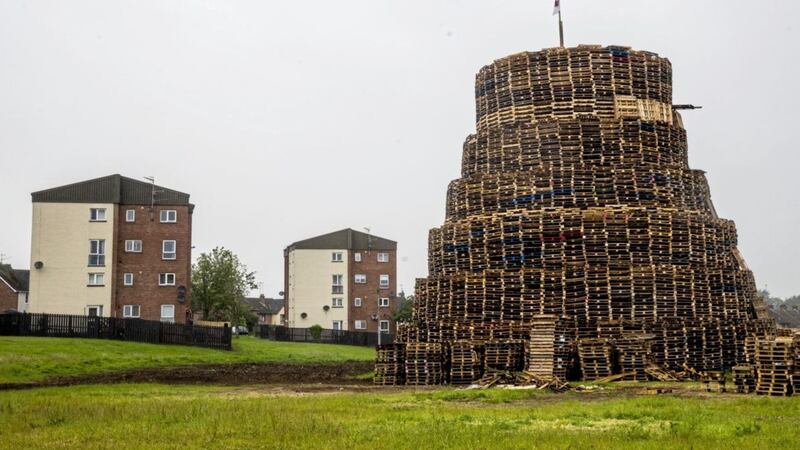It is 24 years since I last properly attended a bonfire. I have since driven around to look at them, although again not for years, or been at house parties held for the view of distant bonfires, although that tends to be as much about escaping the festivities as joining them.
My last attendance was to a small bonfire at the bottom of my street in Portadown, containing no tyres and posing no threat to property. It was ‘proper’ in the traditional sense, with the flames and the crowd dying down at a civilised hour. Even the Plymouth Brethren neighbours came out to observe it as if they were not entirely disapproving.
The year before I had gone to one of the town’s larger bonfires, but only in the sensible manner, having a couple of drinks and leaving early. By my mid-20s I already felt too old to hang around.
The year after my last bonfire, I hung out my last flag. Almost the whole street dropped that tradition simultaneously, without discussion, and stuck to it when challenged by men calling with ladders to ‘help’.
In Portadown, naturally, we linked Drumcree to these changes in behaviour but in hindsight they were clearly part of a longer-term decline in the social acceptability of the Twelfth.
I grew up in a neighbourhood of doctors, headmasters and company directors, where the older children made an effigy of Lundy every July and pushed it around in a pram, as if they were like the children we saw on Blue Peter, preparing for England’s bonfire night with a penny for the Guy.
I cannot remember when I last saw such an effigy, let alone on a leafy street. Election posters and offensive slogans have replaced it.
We have moved into an era of discussing bonfires and flags in terms of regulation and enforcement. Too little attention is paid to the enormous, organic shift away from Twelfth celebrations by the unionist population.
Perhaps it looks too much like middle-class snobbery, the worst crime imaginable and hence impossible to acknowledge.
In truth, Northern Ireland barely has a class system in British terms. We are all too similar, especially in a small country town. What we had instead, certainly 24 years ago, was a culture of respectability. Anyone could be respectable, whatever their background or income, although the rules were unwritten, detailed and mercilessly judged.
The Twelfth was fully integrated into this cult. There was a hierarchy of respectability for the loyal orders, from the Royal Black Institution down. There was one for flags on houses, from the Union flag to loyalist banners. There were ‘good’ and ‘bad’ bonfires, according to location and conduct. Some of this gradation was based on snobbery and some on what used to be called ‘staunchness’. The scales overlapped in complicated ways but the point is a person could mark the Twelfth and still consider themselves middle-class. That is what has fundamentally changed.
Obviously, the Troubles pumped poison into what has always been a divisive holiday. Rising affluence and the flight to the suburbs must also have disconnected people from the Twelfth tradition. However, in the longer view, the failure of leadership by unionist parties and the loyal orders stands out.
In Northern Ireland, aspiration has come to mean constitutional aspiration but any political movement must relate to the more everyday life goals of its supporters, be that Margaret Thatcher selling council houses or Tony Blair appealing to ‘Mondeo Man’.
Few people aspire to have their children building bonfires or to live on a street marked with flags, nor have they for decades.
Sinn Féin recognised that in the 1980s and replaced anti-internment bonfires with political festivals. The party is still struggling to win middle-class support and its recent setbacks have brought this to renewed attention.
Of at least equal significance is how unionism, by still equivocating over flags and bonfires, keeps moving itself relentlessly down-market.









